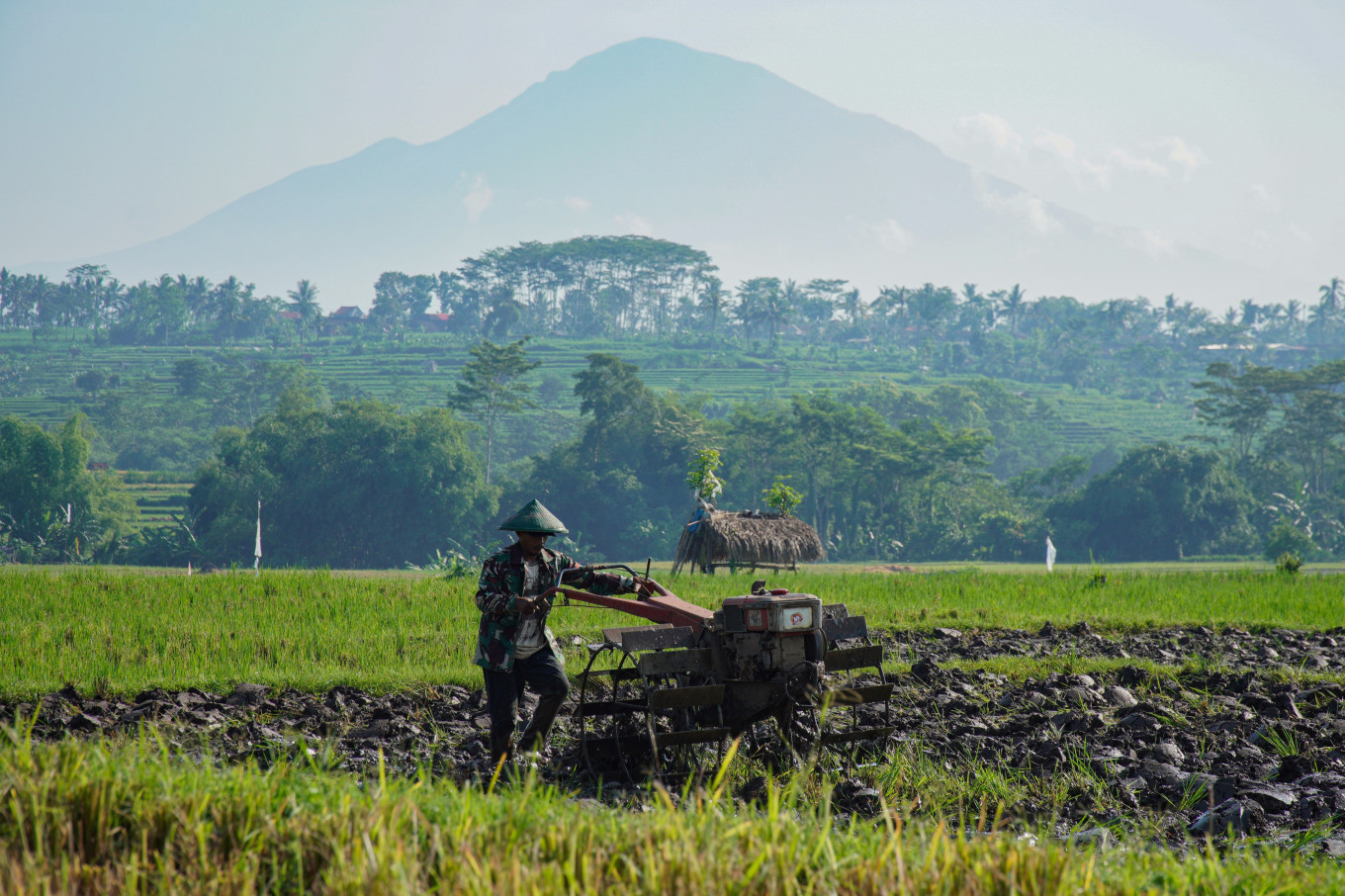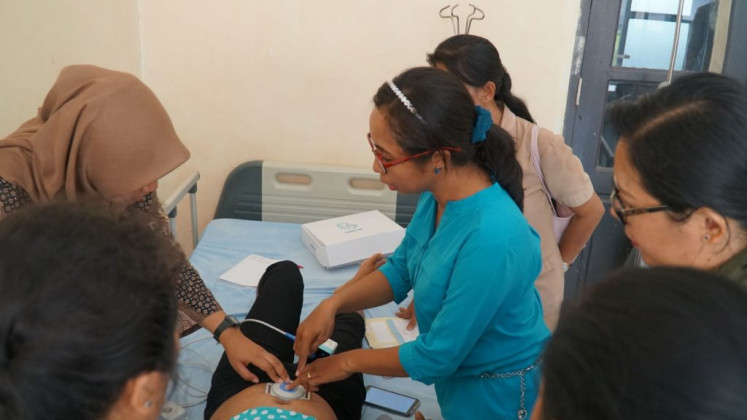Popular Reads
Top Results
Can't find what you're looking for?
View all search resultsPopular Reads
Top Results
Can't find what you're looking for?
View all search resultsFamily farmers must be more prosperous
Nearly half of Indonesia’s poor are farmers or those who work in agriculture, animal husbandry and fisheries.
Change text size
Gift Premium Articles
to Anyone
A
cross Indonesia, the world’s largest archipelago country, it is a familiar reality to see households that have plots of land with rice, sweet potatoes, vegetables or fruits with a fishpond, chicken coop and cows or goats. These are the country’s family farmers. While they vary in terms of land area, productivity, natural and socio-cultural conditions, data from Statistics Indonesia (BPS) shows that 265 million Indonesians depend on around 28 million households as their daily food providers.
This reality is often overlooked in development narratives, particularly in areas of poverty alleviation, food security and the environment. In fact, nearly half of Indonesia’s poor are farmers or those who work in agriculture, animal husbandry and fisheries. They are among the most vulnerable when drought, floods, extreme weather or climate disasters hit.
Bappenas and Food and Agriculture Organisation (FAO) of the United Nations are working to ensure the welfare of family farmers, recognizing that the marker of sustainable development must support family farmers to tackle various economic, social and environmental challenges.
To achieve this, development policies are designed with careful planning keeping family farmers at the center. National development goals also are aligned with the Sustainable Development Goals (SDGs) which are the common goals of member countries of the UN. This is one of the tasks and functions of Bappenas in planning the direction of Indonesia's development.
Now, food security, improving farmer welfare and empowering the local governments and communities are priority programs in President Prabowo Subianto's Asta Cita, which also guides the National Medium-Term Development Plan (RPJMN) and the National Long-Term Development Plan (RPJPN). Indonesia also has a National Family Farming Action Plan 2020-2024 aligned with the UN's 2019-2028 Decade of Family Farming dedicated to advancing family farming.
An example of Nissa Wargadipura, a farmer from Garut, West Java can be worth sharing here. She produces enough food for 30 members of her boarding school from a one-hectare yard. The key to her success is the maintenance of biodiversity by planting various local vegetables, tubers and spices. She also maintains water and soil sources by raising freshwater fish and livestock.
This simple technique, already familiar to many family farmers across Indonesia, needs to be further shared with millions of other family farmers as a good practice. Recognizing her success story, FAO also conferred her with the title of a global food hero in 2024, and she could share her stories with audiences from all across the globe.
Bappenas therefore continues to advocate to ensure that various flagship government priority programs such as the free nutritious meals (BMG) and village funds focus on small family farmers. FAO, as a technical specialized UN agency and strategic development partner in the field of food and agriculture, is also working with Bappenas in this effort.
Through the free nutritious meal (MBG) program, family farmers are encouraged to participate in the food systems value chain, from farm to table, providing them with an opportunity to directly sell their local produce to the program and earn additional income. Regardless of the varying land area owned by each household, production can be increased if the family farmers can be trained to optimally use water, land, seeds, fertilizers, various tools and agricultural technology.
Management of pests and diseases in plants, livestock and farmed fish is also an important effort to prevent losses. Through various input supplies and skills, family farmers can ensure the safety, cleanliness and quality of food for MBG, thereby ensuring adequate nutrition, and preventing any diseases originating from food ingredients.
Access to financing for family farmers is important in post-harvest management of agriculture, livestock and fisheries products. Food losses can be prevented by providing packaging skills, cold storage facilities and improved infrastructure. Improving their access to transportation can reduce the number of intermediaries in selling their products.
With the village fund program, which has now been running for almost a decade, family farmers can enjoy increased welfare. Village funds can finance various infrastructure, skills and tools needed by family farmers. On the other hand, funding can also advance cooperatives, provide access to soft loans and insurance to support agricultural businesses at the household level.
Providing agroecological techniques to the family farmers that have been applied in various countries is the main tool to face the challenges of the climate crisis, extreme weather and land conversion. This is because family farmers that can maintain water sources, biodiversity and manage waste wisely will be able to also maintain production levels.
With growing climate vulnerabilities, access to funding at the village level also becomes important in emergency situations when farmers are at risk of crop failure due to drought, flooding or other disasters. On the other hand, availability of capital also prevents farmers from selling their land.
Finally, it needs to be emphasized that sustainable development requires cooperation and synergy of various fields and close cooperation at the village, regional, national and international levels.
By focusing on the prosperity of family farmers, Indonesia can not only secure its food systems, but also build a more inclusive, resilient and sustainable future for all.
---
Leonardo A.A. Teguh Sambodo is deputy for food, natural resources and environment at National Development Planning Agency (Bappenas). Rajendra Aryal is the representative of the Food and Agriculture Organization of the United Nations (FAO) in Indonesia and Timor-Leste.











